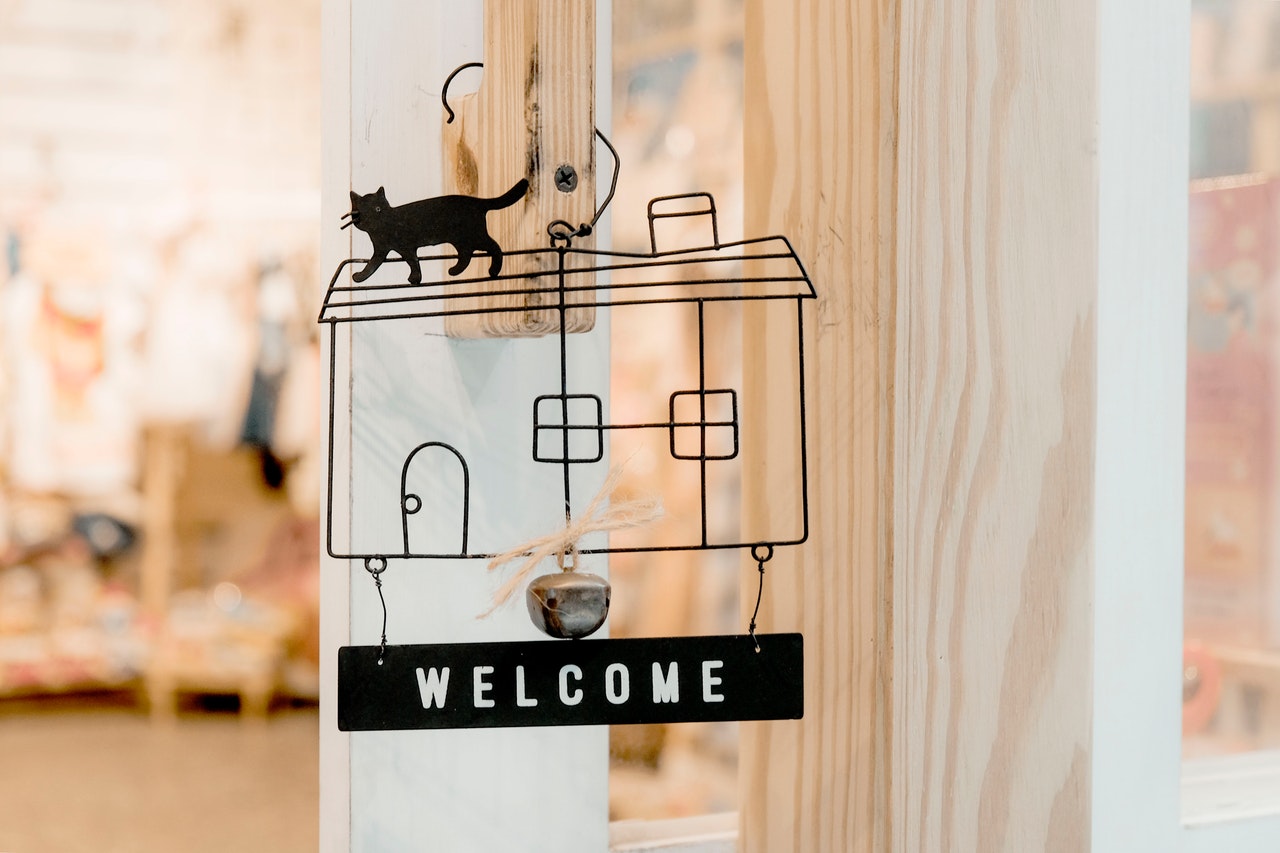1. El principal reto: tu hotel necesita más reservas directas
Hace unos años atrás, los hoteles dependían en gran medida de las OTAs y de los operadores turísticos para establecer una tasa de ocupación objetiva y llevar a los huéspedes a los hoteles. Hasta entonces, los hoteles disfrutaron de asociaciones con agencias de viajes y operadores turísticos, y los huéspedes disfrutaban de las reservas de paquetes turísticos.
{{cta(‘bb2971b9-bf36-4c36-8edc-75223dba5208’)}}
Sin embargo, con el paso del tiempo, las tendencias han ido cambiando y los viajeros, ahora y más que nunca, buscan hacer sus propias elecciones y reservar todos los elementos de sus viajes por su propia cuenta. Los viajeros no solo están listos, sino que también están dispuestos a reservar un hotel directamente en su sitio web, siempre que las condiciones de venta sean similares a las de las OTAs y la reserva se pueda realizar de la manera más sencilla posible.
Para los hoteleros, las reservas directas traen enormes beneficios. Entre ellos, ahorrar en comisiones, mejorar la estrategia de marketing online, aumentar la rentabilidad y tener un control total sobre la comunicación con los clientes. Con tales promesas de reservas directas, no es de extrañar que ahora cada vez más hoteles impulsen sus esfuerzos de marketing hacia el objetivo de aumentar el número de reservas directas en el sitio web del hotel.
2. Ganar una ventaja competitiva
Está claro que un aumento en la tasa de reservas directas sería beneficioso para tu hotel. Pero ¿cómo conseguir este objetivo?
Con tal de competir con las OTAs y los operadores turísticos, tu hotel debe contra con una ventaja competitiva. Hay dos formas de tenerla: ofreciendo un trato más económico, u ofreciendo más valor y aumentando la fidelización de tus clientes. Si bien puede ser difícil para tu hotel competir con las OTA en base a los precios, ofrecer una oferta personalizada y establecer una relación de confianza con los clientes sería la mejor manera de atraer a los viajeros.
La clave para agregar valor a tu oferta hotelera es conocer a tu cliente y ofrecerles lo que necesitan. Atraerlos a través del factor emocional es esencial, y debes establecer una conexión genuina con tus potenciales clientes, transmitiendo tus creencias para que tus huéspedes puedan relacionarse con ellos.
Cuando los clientes observan que la marca de un hotel realmente se preocupa por su experiencia e intenta encontrar la mejor solución para que su experiencia de vacaciones sea inolvidable, es más fácil para ellos tomar la decisión a favor de reservar directamente con tu hotel.
Una forma común de agregar valor y personalizar la comunicación con tus huéspedes es implementar un programa de fidelización. Con un programa de fidelización implementado en tu establecimiento, podrás adaptar tus mensajes a las necesidades de clientes particulares, comprender sus preferencias y satisfacer sus expectativas.

3. ¿Cómo puede ayudar tu base de datos de clientes?
Así pues, un hotel necesita un programa de fidelización para ofrecer servicios valiosos y personalizados a los clientes, y obtener así una ventaja competitiva. Para dar forma a tu programa de fidelización, debes contar con una base de datos de tus clientes con información personal sobre ellos. Los hoteleros deben crear una base de datos de clientes con información de contacto básica e información personal más elaborada sobre las preferencias e intereses de los huéspedes.
La adquisición de esta información personal te brindará la posibilidad de adaptar tus mensajes a cada cliente potencial o existente, y ofrecerles contenidos, productos y servicios que satisfagan sus necesidades en particular. Esto, sin duda, los sorprenderá por el grado de personalización y las medidas que toma tu hotel para proporcionarles la mejor experiencia de vacaciones posible. Serías capaz de establecer una relación duradera con tus clientes basada en la confianza, asegurando así a los clientes más satisfechos, que estarían encantados de promocionar tu marca hotelera.
4. ¿Cómo obtener la información de tus clientes?
Contar con una base de datos de clientes con información de contacto, preferencias e intereses de tus huéspedes suena muy bien, pero ¿cómo reunir la información sobre tus clientes?
El mayor desafío para los hoteleros sigue siendo obtener información personal y crear así sus bases de datos. Cuando trabajan en colaboración de las OTAs y los operadores turísticos, los hoteles normalmente obtienen el mínimo de información sobre los huéspedes, lo que no es suficiente para llevar a cabo una comunicación directa eficiente.
La solución para obtener la información para crear tu base de datos se puede encontrar en un sencillo software de Pre-Checkin. Ofrecer la opción de realizar un checkin previo a tus huéspedes no solo te ayudará a recopilar toda la información del huésped antes de su llegada, sino que también te ayudará a comenzar a trabajar tu programa fidelización incluso antes de la llegada de tu huésped.
Esto enriquecería la experiencia de los clientes desde sus primeros pasos al registrarse en tu hotel. Los ayudarías a evitar colas innecesarias en la recepción, ya que el pre-checkin aceleraría los procesos de tu personal de recepción.
“El software Pre-Checkin permite a tus huéspedes realizar todos los pasos habituales del proceso de checkin antes de su llegada, evitando filas innecesarias en la recepción y personalizando su estancia”
Este software permite que los huéspedes realicen todos los pasos del proceso de checkin antes de su llegada, empleando solo el teléfono o cualquier otro dispositivo. Dado que el software es compatible con múltiples dispositivos y está integrado con el PMS del hotel, la información del huésped se dirigirá directamente al sistema de tu hotel y el personal de recepción solo tendrá que configurar previamente la llave y entregarla a los huéspedes a su llegada.
Ofrecer este valor agregado a tus huéspedes es una gran oportunidad para obtener su información personal (con su permiso y consentimiento). Asegúrate de mostrar a tus clientes que, al compartir sus intereses y preferencias con tu hotel, mejorarán su estancia, al permitirles personalizar su experiencia y ofrecer servicios adicionales de interés.

5. Gestión centralizada de tu base de datos con CRM
Una vez que hayas obtenido la información de tus huéspedes y hayas construido tu base de datos de clientes, te deberás enfrentar a otro desafío que puede entorpecer la fidelización del cliente. La gestión centralizada de datos es esencial, ya que permite que, en el caso de que cuentes con una cadena hotelera, todos los establecimientos tengan acceso a la información de los clientes y, por lo tanto, hace posible brindar una experiencia homogénea. Un software de CRM (Customer Relationship Management) te ayudará a administrar tu base de datos de clientes.
Vamos a imaginar una situación para entender cómo un software de CRM centralizado puede ayudar a tu hotel.
Un cliente se hospedó en uno de los establecimientos de tu cadena hotelera y tuvo una experiencia increíble. El año siguiente, pues, decide quedarse en otro de tus hoteles.
En el software CRM de tu hotel, contarías con la información sobre los intereses de este cliente, y quizás incluso sobre sus alergias. Por lo tanto, a su llegada al nuevo hotel, tu personal tendrá información completa y podrá adaptar la experiencia de la estancia de este huésped para satisfacer sus necesidades y preferencias.
Por otra parte, tienes la opción de usar el CRM para ofrecer actualizaciones a tu huésped sobre temas que podrían ser de su interés. Por ejemplo, si este huésped ficticio tiene alergias específicas, puedes enviar una actualización personalizada por correo electrónico sobre los cambios en el menú que tienen que ver con sus alergias.
Dicha comunicación hecha a medida te permitirá mostrar a tus clientes que realmente te preocupas por ellos, y seguramente te ayudará a mejorar tu método de fidelización y a generar más confianza en tu público.
Además de aumentar la fidelización de tus clientes, hay todavía más beneficios de la gestión centralizada con CRM, como una mejor administración de las operaciones, una mejor administración de los ingresos y beneficios para los departamentos de distribución. La importancia del CRM para la industria hotelera se ha demostrado durante mucho tiempo, y sin duda el CRM es el software más rápido para el crecimiento en el mercado del mundo. (Superoffice, 2018).
Los hoteleros ahora cuentan con la oportunidad de hacer ofertas personalizadas a sus clientes y aumentar el número de reservas directas. Los viajeros buscan un toque personal y valoran la comunicación humana honesta con un hotel. Están listos para alejarse de los intermediarios y crear una experiencia de vacaciones de ensueño junto con el hotel.

